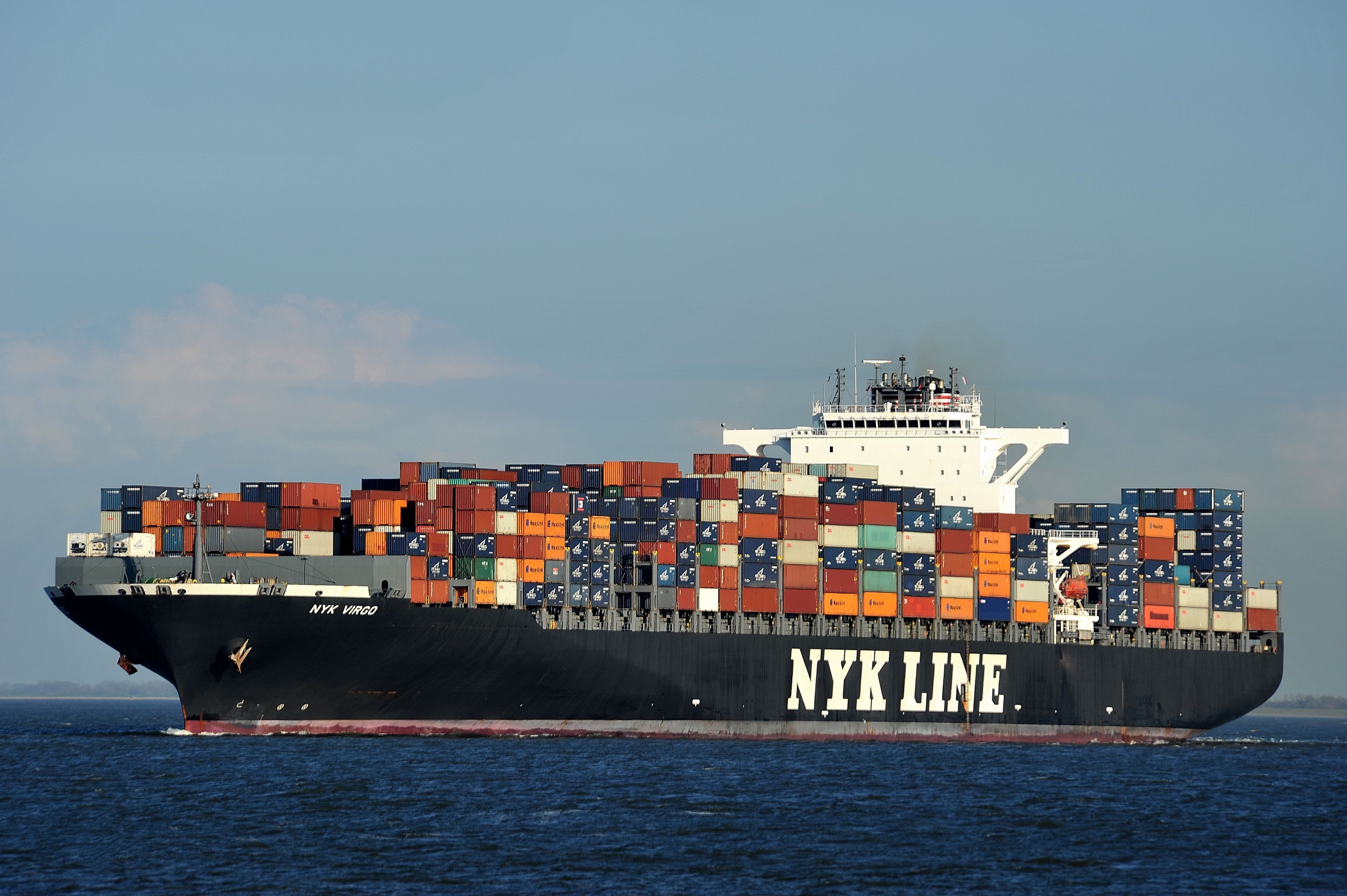GSCP: Transforming global container shipping industry.
.jpg)
Before I jump into the technicalities, let me share with you a brief history and a few facts about shipping containers. Shipping containers are nothing but metal freight containers that can be stacked on ships, trucks, or rail. As per the stats, more than 27 million freight containers are either traveling to or from their destination or are waiting to be picked up at this very moment. This idea of transporting virtually all the goods in containers was brought forward by an American Malcom Purcell Mclean in the 1950s. The idea flourished and developed into standard quantity containers and soon became the preferred way in which the world moved around goods through the sea, rail, and road. This invention by Mclean changed the course of the shipping industry and global trade as well.
The stats show that global container trade accounts for 60% of the world seaborne trade and is valued at a whopping 12 trillion US dollars.
As the trade increased so did the capacity of containers. And the problem begins here. Between 1980 and 2016, the deadweight tonnage of container ships has grown from 11 million metric tonnes to 244 million metric tonnes. Problems such as idle and overcapacity, outdated IT systems and processes, complicated paperwork, No real-time updated information, environmental regulations and substandard service to customers have become an issue.
The time is ripe in the industry for disruption and Block shipping does this through GSCP- Global shared container platform.
GSCP is a neutral, global platform for all the parties involved in the shipping industry including carriers, ports, terminals, transport companies, and more.
The project aims at creating a global registry based on blockchain that will allow the industry to keep a track of all the containers. In addition, it will also help the businesses in the industry to efficiently manage their transactions related to containers.
The shipping biggies have already shown interest in the project and to prove their backing, groups such as Private angels and The Danish Maritime fund have invested in the platform. To further accelerate the growth as such, the company has decided to embark upon an ICO opening to raise funds through cryptocurrencies. This will accelerate the development and reduce time in the market.
According to the whitepaper, there are 27 million freight containers under operations and there is a dire need to have a sort of registry for these. In this way, checks can be maintained and capacity can be adjusted as per the current demand.
The perks:
The CEO and founder of Block shipping, Peter Ludvigsen has 38 years of experience in the shipping industry.
The project is already backed by two industry players and commands the trust of other players as well.
The 2.0 ICO, as they call it, is based on a revenue-sharing model. Also, the investors can sell back all their coins back to the platform at the floor price until some milestones are met.
The platform will enable savings of up to 5.7 billion USD per year.
The platform is aiming for global adoption as such. The level of competition is almost nil with two firms working on a similar concept.
The platform is expected to reduce the global CO2 emissions by at least 4.6 million tons yearly.
Being based on the blockchain, it will be based on a decentralized recording of the transaction. The trustless and transparent nature will further ensure brevity. Smart contracts would provide another immutable dimension to the platform.
The grey box opportunity concept can be adopted as well by which containers can be shared globally across different companies.
The ICO 2.0 framework would help in increasing standards in terms of security, openness, transparency, and honesty.
This framework is being created by a Denmark based law firm in 100% compliance with Danish laws.
The native tokens and their ICO:
The platform for convenience and utility purposes will introduce two tokens:
The internal utility token or Container Platform Token (CPT).
It will be used for clearing and settling transactions on the platform. The users will transact on services related to global container handling.
A percentage of the revenue earned from the transactions will go to Revenue share pool and finally passed on to the owners of CCC tokens through a dividend model.
The external token or Container Crypto coin (CCC) is issued on the Ethereum blockchain. The owners will come under an innovative revenue model and a buyback scheme with payments in Ether.
The total number of CCC tokens that will be issued is 50,000,000 out of which 70% will be up for public sale and 10% in the presale. (42,500,000 tokens). The number of tokens to be held by founders and advisors will be 7,250,000. The price per token would be USD 0.62.
The public sale will begin from 14th May.
Concluding Remarks:
The project is magnanimous in approach, detailed in structure and multifaceted to suit the several needs of the shipping industry. Being the first of its kind, it has a first mover's advantage for investors. The Revenue model as well as the buyback scheme so offered, make the investment drool worthy and lucrative indeed. For users, the CPT tokens confirm the transacting utilities. Blockshipping has lent a sort of magnum opus to the shipping industry.
For more details visit:
Website: https://www.blockshipping.io/
ANN Thread: https://bitcointalk.org/index.php?topic=3502572.new#new
Telegram: https://t.me/joinchat/HWi2Gw9VvUw1U5lZObNS2w
Blog By: Lanirm Knayam
BTT Profile: https://bitcointalk.org/index.php?action=profile;u=1308391